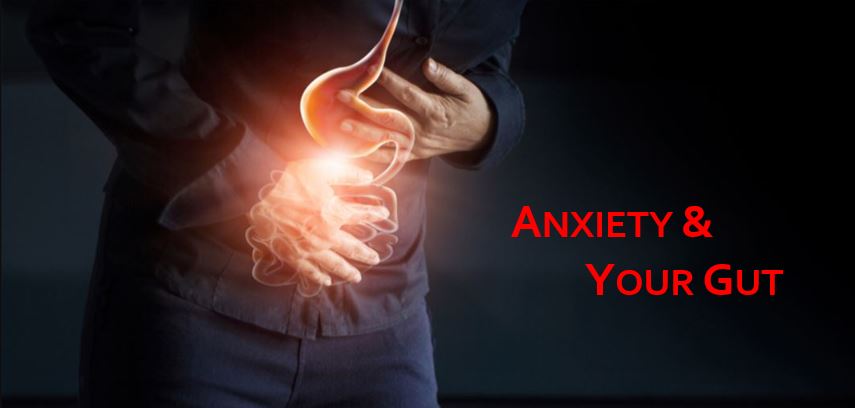
About 25% of people taking fluoxetine (Prozac) and other types of similar-acting antidepressants experience gastrointestinal problems such as nausea, diarrhea and constipation. The problem with these drugs is that they prevent uptake of serotonin by cells that should be using it.
While this enables the depressed person to have more serotonin in the brain, less is available for use by the cells of the gastrointestinal tract. "Serotonin is calming to the digestive tract, initiates peristaltic and secretory reflexes," notes nutritionist June Butlin, M.Sc., Ph.D. "Long-term use or the wrong dosage may cause fluctuations between nausea, vomiting, constipation and diarrhea, and can cause depression, anxiety, insomnia, and fluctuations in appetite."
In a study reported in The New York Times article, Dr. Gershon and his colleagues explain Prozac's side effects on the gut. They mounted a section of guinea pig colon on a stand and put a small pellet in the 'mouth' end. The isolated colon whips the pellet down to the 'anal' end of the column, just as it would inside an animal. When the researchers put a small amount of Prozac into the colon, the pellet "went into high gear," Dr. Gerhson explained to the paper. "The drug doubled the speed at which the pellet passed through the colon, which would explain why some people get diarrhea," the paper says. No wonder, in small doses, Prozac is used to treat chronic constipation.
Although a little is beneficial for constipation, a lot is not. When the Gershon team greatly increased the amount of Prozac in the guinea pig colon, the pellet stopped moving at all. Hence, a little cures constipation; a lot causes it. Prozac stimulates sensory nerves, thus can also cause nausea.
The gut has opiate receptors much like the brain. "Not surprisingly, drugs like morphine and heroin that are thought to act on the central nervous system also attach to the gut's opiate receptors, producing constipation," notes pain management specialist Michael Loes, M.D., M.D.(H.), author of The Healing Response (Freedom Press 2002) "Both brains," he says, "can be addicted to opiates."
Many Alzheimer's and Parkinson's disease patients are constipated. A sickness we think of as primarily affecting the brain or central nervous system also impacts the gut.
Our gut also helps us in some amazing ways. The gut also produces chemicals called benzodiazepines. These are the same chemicals found in anti-anxiety drugs like Valium, and these are the same chemicals that alleviate pain. Perhaps our gut is truly our body's anxiety and pain reliever. While we are not sure whether the gut synthesizes benzodiazepine from chemicals in our foods, bacterial actions, or both, we know that in times of extreme pain, the gut goes into overdrive, delivering benzodiazepine to the brain. The result is to render the patient unconscious or at least reduce the pain, says Dr. Anthony Basile, a neurochemist in the Neuroscience Laboratory at the National Institutes of Health in Bethesda, Maryland.
A Bit of Background
Throughout the world's healing and mystical traditions, the belly is seen as an important center of energy and consciousness. You've probably noticed that many of India's great spiritual adepts sport prodigious bellies. These tremendous tummies are thought to be full of prana. Hence, Indian artists often depict their deities with a paunch.
In China, the gentle art of tai chi emphasizes the lower abdomen as a reservoir for energy. Tai chi teacher Kenneth Cohen, author of The Way of Qigong (Ballantine Books 1997), explains that it's possible to strengthen the abdominals by learning how to compact qi (prana) into the belly. "From the Chinese viewpoint," he says, "the belly is considered the dan tian or 'field of the elixir,' where you plant the seeds of long life and wisdom."
Lastly, in Biblical times, the seat of emotion, which we call the heart, is actually referring to the bowels. That thought in itself conjures up an image of a young Romeo sending a love note to his Juliet saying, "You move me."
In all seriousness, most people today completely ignore gut health. As a result, they are experiencing health problems that could be overcome if they knew that they centered in their gut. So I guess the thing to remember is, as Dr. Gershon puts it, "Take care of your gut and your gut will take care of you."
Notes taken from, Patient Heal Thyself by Jordan S. Rubin, NMD, CNC
This is Part 3 of the Brain-Gut Connection that explains the vagus nerve and the circuitry connecting our two brains. Access Part 2 here: Sleep Gut Connection.

